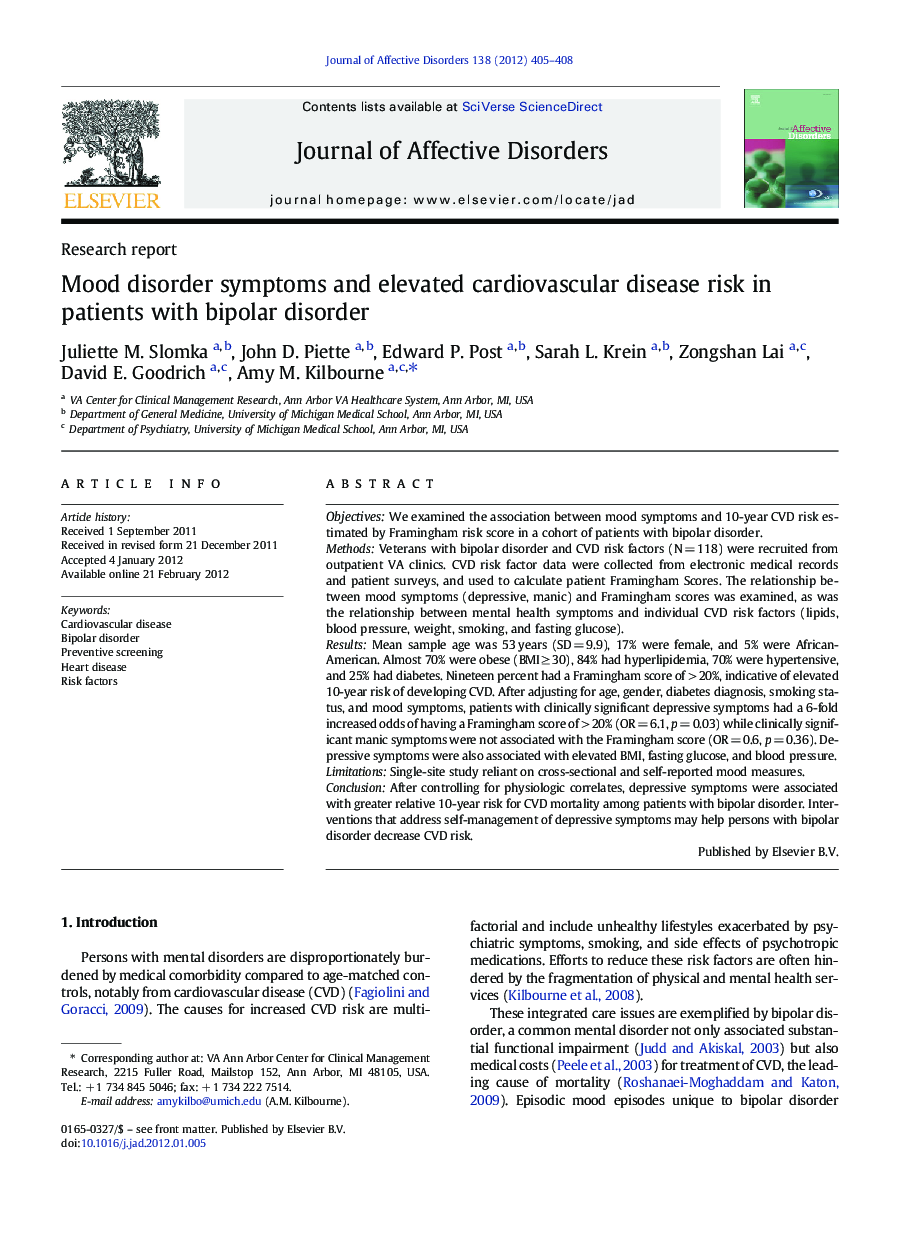| Article ID | Journal | Published Year | Pages | File Type |
|---|---|---|---|---|
| 6235941 | Journal of Affective Disorders | 2012 | 4 Pages |
ObjectivesWe examined the association between mood symptoms and 10-year CVD risk estimated by Framingham risk score in a cohort of patients with bipolar disorder.MethodsVeterans with bipolar disorder and CVD risk factors (N = 118) were recruited from outpatient VA clinics. CVD risk factor data were collected from electronic medical records and patient surveys, and used to calculate patient Framingham Scores. The relationship between mood symptoms (depressive, manic) and Framingham scores was examined, as was the relationship between mental health symptoms and individual CVD risk factors (lipids, blood pressure, weight, smoking, and fasting glucose).ResultsMean sample age was 53 years (SD = 9.9), 17% were female, and 5% were African-American. Almost 70% were obese (BMI â¥Â 30), 84% had hyperlipidemia, 70% were hypertensive, and 25% had diabetes. Nineteen percent had a Framingham score of > 20%, indicative of elevated 10-year risk of developing CVD. After adjusting for age, gender, diabetes diagnosis, smoking status, and mood symptoms, patients with clinically significant depressive symptoms had a 6-fold increased odds of having a Framingham score of > 20% (OR = 6.1, p = 0.03) while clinically significant manic symptoms were not associated with the Framingham score (OR = 0.6, p = 0.36). Depressive symptoms were also associated with elevated BMI, fasting glucose, and blood pressure.LimitationsSingle-site study reliant on cross-sectional and self-reported mood measures.ConclusionAfter controlling for physiologic correlates, depressive symptoms were associated with greater relative 10-year risk for CVD mortality among patients with bipolar disorder. Interventions that address self-management of depressive symptoms may help persons with bipolar disorder decrease CVD risk.
